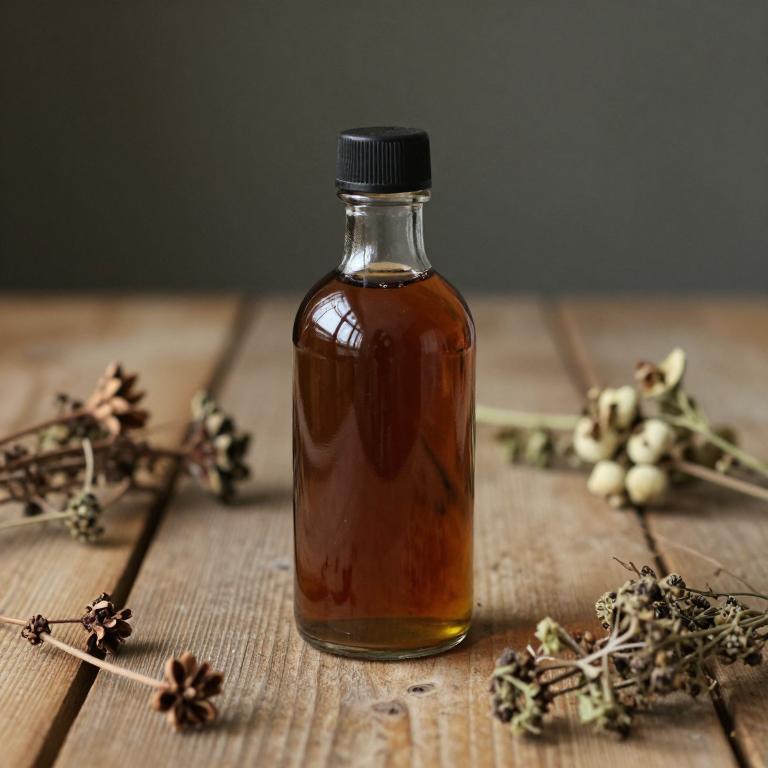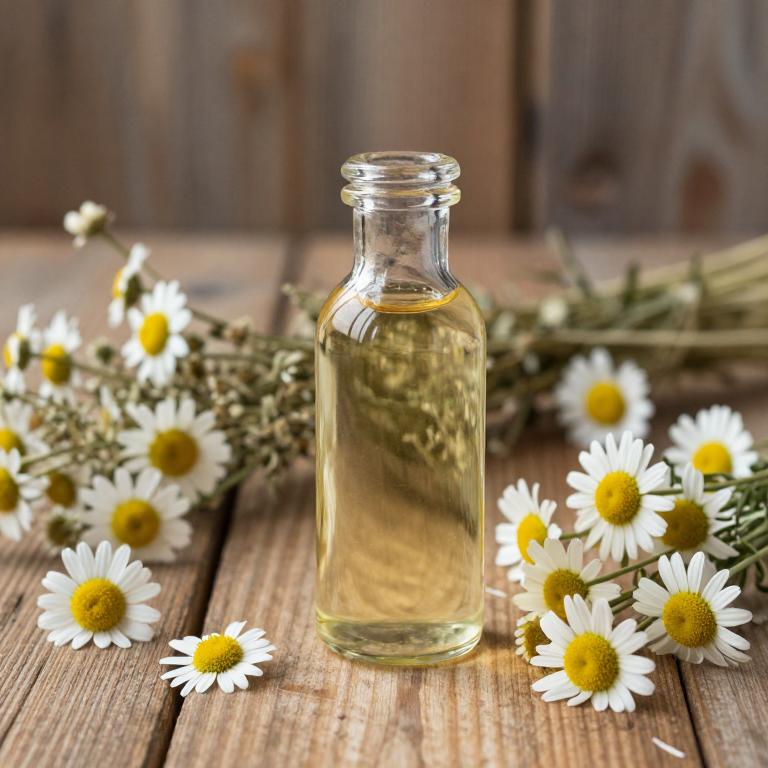10 Best Herbal Syrups For Endometriosis

Herbal syrups have gained attention as a complementary approach for managing symptoms of endometriosis, offering a natural alternative to conventional treatments.
These syrups often contain a blend of herbs such as turmeric, ginger, and chasteberry, which are known for their anti-inflammatory and hormonal balancing properties. They may help alleviate pain, reduce menstrual cramps, and support hormonal regulation in individuals with endometriosis. However, it is important to consult with a healthcare provider before using herbal syrups, as they can interact with other medications or have varying effects on different individuals.
While they are not a cure, herbal syrups can be a part of a holistic management plan for endometriosis.
Table of Contents
- 1. Black cohosh (Cimicifuga racemosa)
- 2. Chaste tree (Vitex agnus-castus)
- 3. Turmeric (Curcuma longa)
- 4. Thistle (Silybum marianum)
- 5. Stinging nettle (Urtica dioica)
- 6. Ginger (Zingiber officinale)
- 7. Licorice (Glycyrrhiza glabra)
- 8. Salvia (Salvia officinalis)
- 9. Chamomile (Matricaria chamomilla)
- 10. Dog rose (Rosa canina)
1. Black cohosh (Cimicifuga racemosa)

Cimicifuga racemosa, commonly known as black cohosh, is a herbal remedy that has been traditionally used to alleviate symptoms associated with hormonal imbalances, including those seen in endometriosis.
Herbal syrups made from Cimicifuga racemosa are often used to manage menstrual pain, reduce inflammation, and ease the hormonal fluctuations that can exacerbate endometriosis symptoms. These syrups are typically prepared using standardized extracts to ensure consistent potency and efficacy. While some studies suggest that black cohosh may help regulate menstrual cycles and reduce pelvic pain, it is important to consult with a healthcare provider before use, as it may interact with other medications or have side effects.
Overall, Cimicifuga racemosa herbal syrups are considered a complementary therapy that may support symptom management in individuals with endometriosis.
2. Chaste tree (Vitex agnus-castus)

Vitex agnus-castus, commonly known as chaste tree berry, has been traditionally used in herbal medicine to support hormonal balance, making it a popular choice for managing symptoms of endometriosis.
Herbal syrups made from vitex are often used to regulate menstrual cycles and reduce painful cramping associated with the condition. These syrups are believed to influence the pituitary gland, potentially helping to balance estrogen and progesterone levels in the body. While some studies suggest that vitex may alleviate endometriosis-related symptoms, it is important to consult with a healthcare provider before starting any herbal treatment.
As a complementary therapy, vitex agnus-castus syrups may offer natural support for women seeking holistic approaches to managing endometriosis.
3. Turmeric (Curcuma longa)

Curcuma longa, commonly known as turmeric, has been traditionally used for its anti-inflammatory and antioxidant properties, making it a popular herbal remedy for conditions like endometriosis.
Herbal syrups made from curcuma longa are often formulated with other complementary ingredients to enhance absorption and efficacy. These syrups are believed to help reduce pelvic inflammation and pain associated with endometriosis by inhibiting inflammatory pathways in the body. While some studies suggest potential benefits, more clinical research is needed to fully understand their effectiveness and safety.
As with any herbal treatment, it is important to consult a healthcare provider before use, especially for individuals with existing medical conditions or those taking other medications.
4. Thistle (Silybum marianum)

Silybum marianum, commonly known as milk thistle, is a herbal remedy that has been explored for its potential benefits in managing endometriosis, a chronic gynecological condition characterized by the growth of endometrial tissue outside the uterus.
While scientific research on its direct impact on endometriosis is limited, milk thistle is noted for its antioxidant and anti-inflammatory properties, which may support overall hormonal balance and reduce oxidative stress in the body. Herbal syrups made from silybum marianum are often used as complementary therapies to alleviate symptoms such as pain and inflammation associated with endometriosis.
However, it is important to consult with a healthcare provider before using these syrups, as they may interact with other medications and are not a substitute for conventional medical treatment.
5. Stinging nettle (Urtica dioica)

Urtica dioica, commonly known as stinging nettle, has been traditionally used in herbal medicine for its potential anti-inflammatory and hormonal balancing properties.
Some herbal syrups containing Urtica dioica are marketed for their ability to support women's health, including managing symptoms associated with endometriosis. These syrups may help reduce pelvic inflammation and ease pain by modulating the body's inflammatory response. However, it is important to note that while some studies suggest potential benefits, more rigorous clinical research is needed to confirm their efficacy for endometriosis.
As with any herbal remedy, it should be used under the guidance of a qualified healthcare provider to ensure safety and appropriateness for individual health conditions.
6. Ginger (Zingiber officinale)

Zingiber officinale, commonly known as ginger, has been traditionally used for its anti-inflammatory and pain-relieving properties, making it a popular herbal remedy for managing symptoms of endometriosis.
Ginger herbal syrups are often prepared by steeping fresh or dried ginger root in a sweetener like honey or maple syrup, creating a soothing and easily digestible form of the herb. These syrups are believed to help reduce pelvic pain, menstrual cramps, and inflammation associated with endometriosis due to their high concentration of gingerols and shogaols. While some studies suggest that ginger may support hormonal balance and reduce oxidative stress, it is important to consult a healthcare provider before using ginger syrups, especially if taking other medications or undergoing treatment for endometriosis.
Overall, ginger herbal syrups can be a complementary option for symptom management, but they should not replace professional medical care.
7. Licorice (Glycyrrhiza glabra)

Glycyrrhiza glabra, commonly known as licorice root, has been traditionally used in herbal medicine for its anti-inflammatory and antioxidant properties, which may offer potential benefits for individuals with endometriosis.
Herbal syrups made from licorice root are believed to support hormonal balance and reduce pain associated with endometrial lesions. These syrups may help alleviate symptoms such as pelvic pain and menstrual cramps by modulating inflammatory pathways in the body. However, due to its potential to increase cortisol levels and affect blood pressure, licorice syrup should be used with caution and under the guidance of a healthcare professional.
While some preliminary studies suggest its therapeutic potential, more research is needed to fully understand its efficacy and safety in managing endometriosis.
8. Salvia (Salvia officinalis)

Salvia officinalis, commonly known as sage, has been traditionally used in herbal medicine for its potential anti-inflammatory and hormone-regulating properties.
Herbal syrups made from sage are sometimes recommended for women with endometriosis due to their ability to support hormonal balance and reduce inflammation, which are key factors in the condition. These syrups may help alleviate symptoms such as pain and irregular menstrual cycles by modulating estrogen levels and reducing oxidative stress. However, it is important to consult with a healthcare provider before using sage syrup, as it can interact with certain medications and may not be suitable for everyone.
While some studies suggest potential benefits, more research is needed to fully understand the efficacy and safety of sage-based treatments for endometriosis.
9. Chamomile (Matricaria chamomilla)

Matricaria chamomilla, commonly known as German chamomile, has been traditionally used for its calming and anti-inflammatory properties, and some studies suggest it may offer relief for women suffering from endometriosis.
Herbal syrups containing chamomilla are often used as a complementary therapy to help manage symptoms such as pain, inflammation, and menstrual discomfort associated with endometriosis. These syrups are typically made by steeping dried chamomile flowers in a sugar syrup, creating a soothing and easily consumable form of the herb. While not a cure, chamomilla syrups may support overall hormonal balance and reduce oxidative stress, which are contributing factors in endometriosis.
As with any herbal remedy, it is important to consult a healthcare provider before use, especially if taking other medications or undergoing treatment for endometriosis.
10. Dog rose (Rosa canina)

Rosa canina, commonly known as rose hip, has been traditionally used for its anti-inflammatory and antioxidant properties, making it a popular ingredient in herbal syrups for managing symptoms of endometriosis.
These syrups are often formulated to support hormonal balance and reduce inflammation, which are key factors in the progression of endometriosis. The high vitamin C content in rose hips helps boost the immune system and may aid in tissue repair, offering potential relief from pain and discomfort associated with the condition. While not a cure, rosa canina herbal syrups are considered a complementary therapy that can support conventional treatments.
As with any herbal remedy, it is advisable to consult with a healthcare professional before incorporating it into a treatment plan for endometriosis.